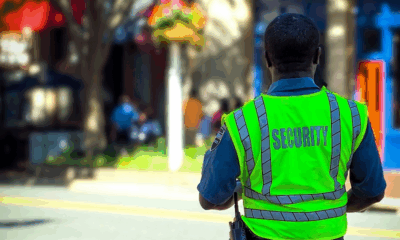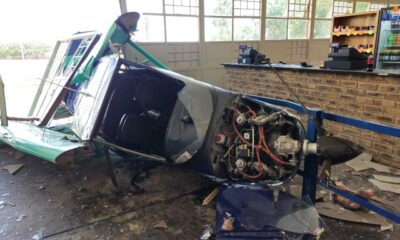News
Cracks Beneath the Classroom: How Illegal Mining is Undermining Gauteng’s Schools

Illegal mining and environmental decay force urgent action in Gauteng education sector
In the heart of Gauteng, schoolchildren are learning about mining, not just from textbooks, but through the cracks forming in their classroom walls.
From Carletonville to Centurion, the ground beneath several public schools is no longer stable, with illegal mining and compromised dolomitic soil creating serious structural risks. The Gauteng Department of Education (GDE) has confirmed that 13 schools are currently undergoing rehabilitation, with 11 located in Vereeniging and Vanderbijlpark alone.
For these communities, the cost of mining isn’t just counted in rands, it’s in interrupted education, displaced students, and classrooms rendered unsafe.
The Hidden Cost of Illegal Mining
Carletonville has long been known for its gold-rich underground tunnels, but that legacy is now haunting the surface. Boiteko Primary School, for instance, sits on ground impacted by illicit mining activity, and it’s far from alone. Laerskool Fleur and Laerskool Louis Leipoldt in Centurion are also under structural review due to unstable ground conditions.
The problem is compounded in industrial zones, where air pollution is literally corroding schools. Buildings in Germiston, Vereeniging, and Vanderbijlpark are deteriorating due to decades-long exposure to chemical pollutants, with reinforcement steel rusting and concrete crumbling.
“The signs of pollution over a long period of time are seen through the dilapidation of concrete and masonry elements,” the GDE noted.
This isn’t just wear and tear. It’s a public infrastructure emergency.
Learning in the Shadow of Mining
Rather than ignoring the problem, Gauteng schools are incorporating it into the curriculum. Grade 5 learners now explore the environmental and social impacts of mining through Social Sciences, while older students tackle these issues in Life Orientation, Natural Sciences, and Geography.
It’s a sobering but necessary step. Children aren’t just learning theory, many of them live the consequences daily.
Safety First: Schools Respond with First Aid Training
Beyond the bricks and mortar, the Department is also doubling down on emergency readiness. In response to increasing risks, both pupils and staff are undergoing accredited first aid training, including CPR, bleeding control, burn and fracture management, and seizure response.
This is all part of the department’s Multi-Certification Skills Programme (MCSP) which gives learners a set of life-saving skills along with their academic qualifications.
-
1,017 learners trained over the past three years
-
315 staff members certified across 116 schools
-
Schools equipped with updated first aid kits and fire safety training
“We train three to four staff members per school to ensure continuity when personnel leave,” the department said.
In a country where emergency services aren’t always minutes away, having trained responders on site is becoming a vital necessity.
No Politics, Just Pupils
As the province wrestles with tangible safety threats, the GDE is also working to keep schools free from political distractions. This includes a strict policy banning organisations like COSAS and PASO from operating in schools.
“Only the Representative Council of Learners (RCL) is recognised,” the department clarified. “While freedom of association is respected, external groups must not disrupt teaching.”
The goal, they say, is to ensure that schools remain focused on learning, not activism.
Keeping Schools Accountable
Despite widespread challenges, the GDE insists it remains committed to transparency and action. It has recorded just one corruption-related case in five years, linked to deep-cleaning during the Covid-19 pandemic — a case that cost R3.8 million in legal fees and led to disciplinary and criminal proceedings.
MEC Matome Chiloane reiterated the department’s stance:
“We take seriously any issues raised within our sector, whether related to safety, governance, or the well-being of pupils and staff.”
Crumbling Infrastructure, Crumbling Trust
What’s unfolding in Gauteng is not just a series of localised issues. It’s a sign of how infrastructure, left unattended and undermined by illegal activity, becomes a threat to basic human rights, like access to education.
Illegal mining might seem like a far-off issue happening in remote shafts and dark tunnels. But its tremors are being felt in schoolyards, classrooms and community halls.
Until structural fixes are matched with systemic change, Gauteng’s learners will continue to study in buildings whose foundations are just as shaky as the policies that built them.
Because no child should have to learn in fear of the roof collapsing, literally or figuratively.
{Source: The Citizen}
Follow Joburg ETC on Facebook, Twitter , TikTok and Instagram
For more News in Johannesburg, visit joburgetc.com



























